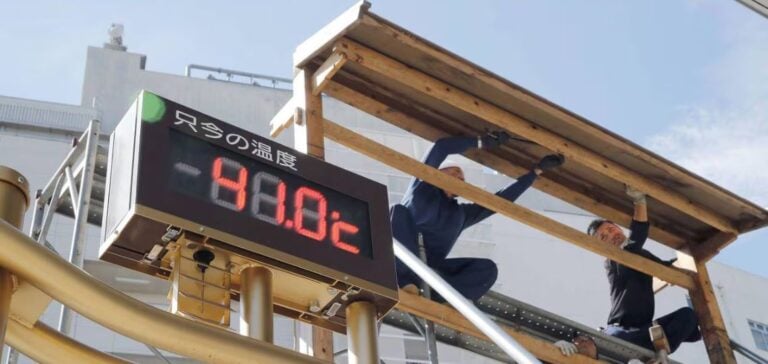Electricity prices in Japan have risen significantly due to high demand caused by record-breaking temperatures.
The Japan Electric Power Exchange recorded a 2.8% rise in the 24-hour forward price, reaching 17.24 yen/kWh on July 30, following a 23.8% increase the previous day. This situation is the result of an intense heat wave that has hit the country, leading to massive use of air conditioning and increased energy consumption.
Tokyo Power Grid, one of the main electricity suppliers, reported that integrated reserve capacity in the Tokyo area dropped to 5.97% on July 29, with peak demand forecast between 1pm and 2pm, reaching 94% plant utilization.
This critical situation prompted emergency measures to meet growing demand.
Emergency measures and increased supply
In response to this unprecedented energy demand, JERA has stepped up its electricity supply by 298.9 MW as of 1:30 pm on July 29.
This increase concerns several generating units, including coal- and gas-fired power plants.
In addition, the Organization for Cross-Regional Coordination of Transmission Operators (OCCTO) has asked member utilities to step up their power supply until 9.30pm to maintain grid stability.
Weather forecasts predict high temperatures across Japan, with peaks of 38°C in Tokyo, 37°C in Osaka and Kagoshima, 36°C in Fukuoka and 33°C in Sendai.
These extreme conditions are expected to keep Tokyo’s reserve capacity at critical levels until early August.
Technical incidents and service interruptions
Several technical incidents disrupted electricity supplies.
Tohoku Electric had to shut down its 295 MW gas-fired unit at Higashi Niigata due to a breakdown, and Hirono IGCC Power reduced its coal production by 270 MW because of a cooling problem.
In addition, JERA announced the closure of its 450 MW gas-fired unit at Minami Yokohama for technical reasons. Kansai Electric managed to restart its 486.5 MW gas-fired unit at Himeji Daini after an unscheduled outage on July 15.
Meanwhile, stocks of liquefied natural gas (LNG) held by Japan’s major electric utilities rose by 6.8% to 2.35 million tonnes as of July 21.
Outlook and management of energy crises
The increased demand for electricity due to extreme heat has highlighted the fragility of the Japanese power grid in the face of climatic variations.
Emergency measures and production increases are temporary responses to a structural problem of managing peak demand.
This energy challenge underlines the need for ongoing investment in infrastructure and diversification of energy sources to ensure long-term stability.
Meanwhile, the sector remains under pressure to maintain a reliable supply despite extreme weather conditions.
The current situation could also prompt regulatory reforms and initiatives to strengthen the resilience of the power grid.
OCCTO continues to monitor the situation closely and issue guidelines to ensure a stable electricity supply.
Companies in the sector are called upon to cooperate and optimize their operations to respond effectively to this energy crisis.






















